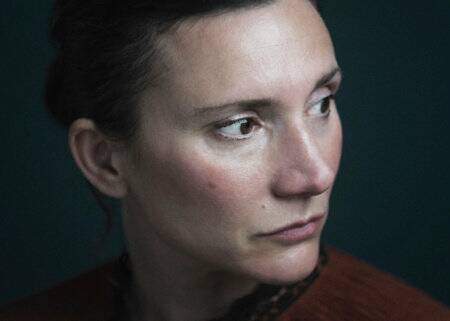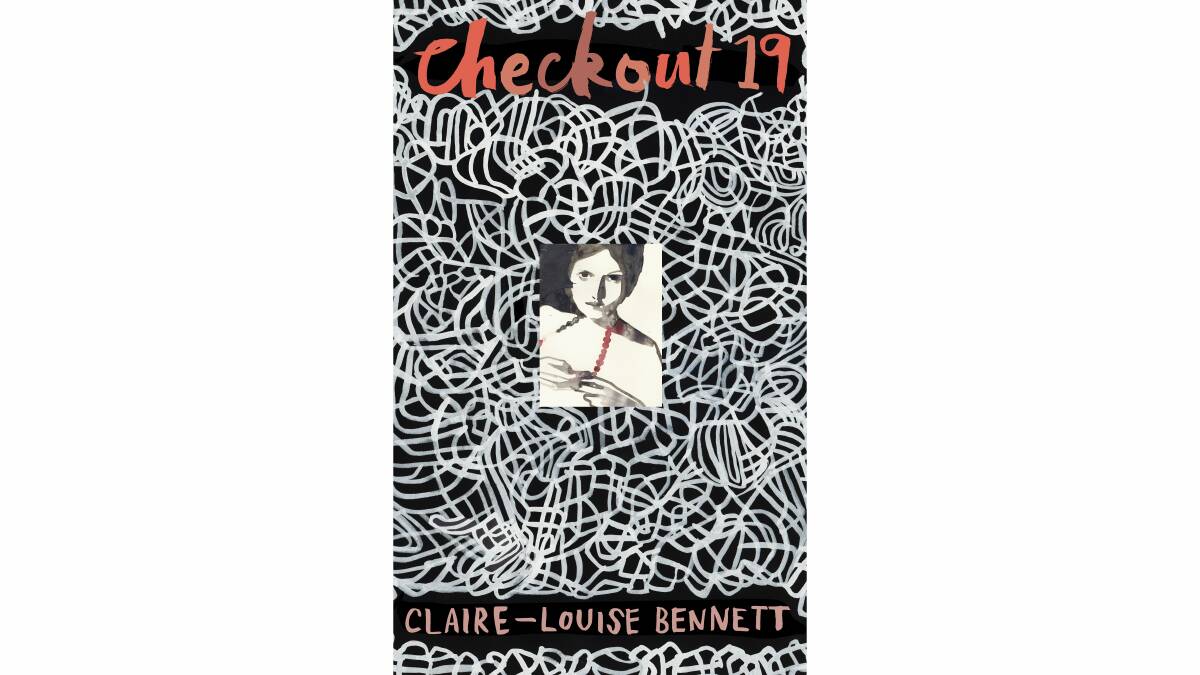
- Checkout 19, by Claire-Louise Bennett. Jonathan Cape, $32.99.
In the space between real life and literary life, an unnamed woman narrates her experiences. What happens in books seems distant from life somewhere in England. But real life is also reflected in the books we read, so there must be some kind of link between literature and the way we live.
Subscribe now for unlimited access.
$0/
(min cost $0)
or signup to continue reading
Claire-Louise Bennett's narrator in Checkout 19 has her head in a book from a young age. Reading is a tactile and formative experience, and the book is an object to experience. No wonder, then, this book is packed with references to other books and other writers. Ann Quin, Edna O'Brien, Virginia Woolf and Sylvia Plath are all named, among many others. Bennett's narrator has plenty to say about their books, and sometimes their lives.

The narrator identifies first with Lucy Honeychurch, the young woman on holiday in Italy in E.M. Forster's 1908 novel A Room with a View. The narrator sees part of herself in Forster's young woman out of place and out of time. But her memory of the story isn't quite right: until she re-reads the book, she thinks Lucy throws her postcards into the river at a pivotal moment. It was actually George Emerson, the lower-class young man who ripples through Lucy's sense of self. Why does this trivial point matter? Bennett's narrator is shaped by her reading, but also her memory of reading. Having a memory corrected shakes the narrator's sense of herself; we write ourselves into the stories we tell ourselves - however we remember them.
Bennett writes many long and very dense paragraphs. Pages go by with no indents. Some of these passages - stream of consciousness, in parts - force one to slow down considerably, with unpunctuated sentences, phrases joined by ideas and white space alone. The technique works. Bennett forces her reader to keep sight of the fact they are reading. This is not to say it is an unenjoyable, dense and difficult book, but the experience will not pass you by. It requires close attention in parts, but this is rewarded.
Early on in the novel, and early on in the narrator's life, she takes to heart her grandmother's phrase: I am not long for this world. Her grandmother repeats this matter-of-factly in her cluttered flat. The granddaughter - the narrator - finds truth in it, too. "I was already experiencing the sensation by this time that I was outside of the world, looking in, and the feelings that sense mostly gave rise to were ones of folornness and anguish," the narrator says. The narrator feels out of place and out of time.
Much later, the narrator says of her cohort of university literature students, they were not reading to pass exams but to come to life. "We confused life with literature and made the mistake of believing that everything going on around us was telling us something, something about our own little existences, our own undeveloped hearts, and, most cruelly of all, about what was to come," she says. Bennett captures the feeling of feeling different, of searing for more, of pointing up and declaring, "There is more than this!" where it is ultimately true or not.
Checkout 19 records that disquiet a person has when they realise - and as they come to realise - their life isn't literature, that there is no carefully plotted conclusion to come. Dale, a fellow student who betrays the narrator in a cruel and selfish way that he has no solid insight into, is said to have, at the apparent end of their friendship, a strong sense of narrative anyway. He is the protagonist of his own story, that he is only able to tell in the first person. There are no consequences for Dale: it's both realistic and disheartening; for it to be any other way would be wishful thinking - that's the point.
The novel is titled for the checkout aisle in the supermarket where the narrator works in the summer. A Russian man in to buy his groceries passes the narrator a copy of Beyond Good and Evil, Nietzsche's famous philosophical tract. This out-of-the-ordinary moment is told in two different ways. Maybe this is the stuff of a literary life, what life in books is made of. Maybe it is just bizarre. For the narrator, though, the choice of the book "unveiled a secluded modicum of my deeper substance, for there is proof ... that the Russian man has ... [seen] straight into the quickening revolutions of my supremely aberrant imaginings".
Checkout 19 could be written off as another difficult literary novel, with allusions and assumed knowledge required of hundreds of novels which preceded it. But it is also a tightly coiled spring of a story, with more life packed into these pages than some books twice the length. The narrator, who remains partly unknowable without so much as a name, is varied and considered. This isn't some contrived story but the outline of a life unfurling.
For Bennett, the gap between literature and real life - with its whiled-away afternoons, imaginations, summer jobs and recurring thoughts of being on the outside looking in - is, in the end, very thin. It is a rich seam from which to write.


